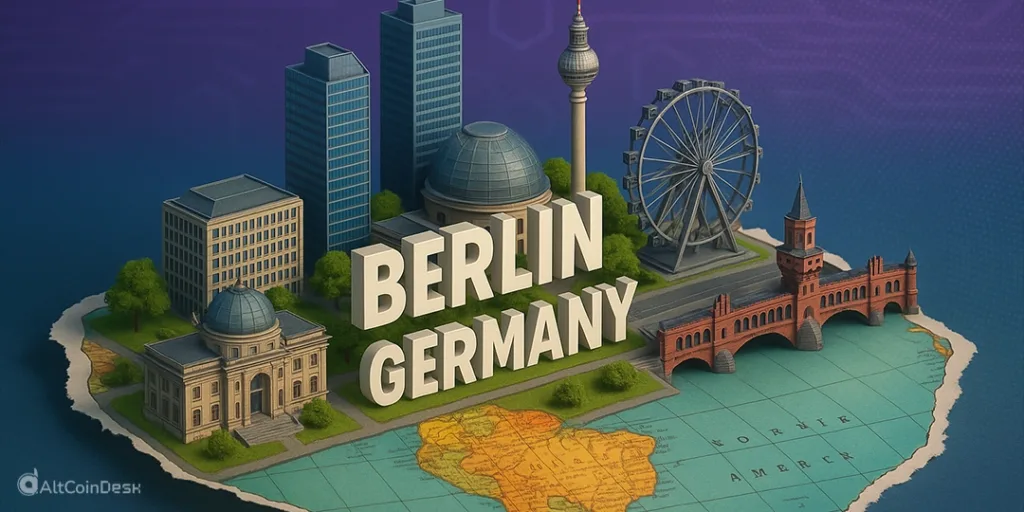Cryptocurrency is moving past the hype—it’s turning into a real asset for the frequent traveler. These days, more international hotspots are increasing crypto adoption, making that crypto wallet in your pocket far more than just a speculative investment. Now, travelers can actually use their assets to enjoy world-class cuisine, local experiences, and, yes, even some high-end shopping. Here’s a look at seven global cities where cryptocurrency isn’t just theoretical—it’s a genuine passport to new business opportunities and cultural adventures.
Ljubljana, Slovenia

Ljubljana hasn’t just embraced cryptocurrency—it’s taken the lead. Take BTC City, for instance. It’s one of Europe’s largest commercial districts, offering everything from tech stores to supermarkets, all accepting various digital currencies. And it’s not limited to a few outliers. Walk around the city center and you’ll find plenty of cafes and restaurants already set up for frictionless crypto transactions. Day-to-day living with digital assets here isn’t some tech fantasy—it’s reality.
Zug, Switzerland

Zug gets called “Crypto Valley” for a good reason—it’s basically where traditional finance meets cutting-edge digital innovation. The city’s super-friendly attitude toward business, mixed with a clear set of rules, has created this magnet for all things crypto. If you’re there on business, you’ll notice a ton of blockchain companies and foundations, all packed into this small city. Fun fact, it is also the place where Vitalik Bithereum, founder of Ethereum, launched Ethereum. The city has even been ranked as the top crypto hub by CoinDesk in 2023.
Abu Dhabi, United Arab Emirates

The United Arab Emirates is no stranger to crypto, which is why both major cities in the UAE are placed on this list. The city’s regulation is clear and inviting, which has basically turned it into ground zero for blockchain firms. You see global investors and top-tier talent flocking in, eager to set up shop. But here’s the kicker: crypto’s not some abstract boardroom discussion. It’s part of daily business. You can settle a cab fare with digital currency, not just luxury buys or investment portfolios. That kind of everyday use? It’s what really positions Abu Dhabi at the front of the pack in this digital economy shift.
Lisbon, Portugal

Lisbon is quickly establishing itself as a hotspot for tech and crypto professionals across Europe. The city’s lively entrepreneurial scene didn’t just happen overnight—it’s been attracting digital nomads, startup founders, and crypto innovators for years. Notable establishments like Donatella restaurant and The Block coworking space accept Bitcoin payments. Today, you’ve got an array of modern co-working spaces, upmarket restaurants, and retail shops offering the option to pay in Bitcoin or other major cryptocurrencies.
Dubai, United Arab Emirates

Dubai’s made it crystal clear: it aims to be a leading global hub for digital assets and a top contender for crypto adoption. The city’s authorities have implemented smart regulations and robust frameworks that offer security and assurance for crypto enterprises. The result? Crypto businesses are booming, and so are opportunities for visitors, who can experience seamless cryptocurrency payments—whether that’s paying for a luxury hotel stay, high-end dining, or premium shopping. Dubai’s approach stands out as a clear case of how forward-thinking governance and large-scale investment can push crypto adoption into the mainstream, building an environment where both business and innovation can thrive.
Buenos Aires, Argentina

Buenos Aires has become a fascinating case study for crypto adoption. With all the economic ups and downs, locals are turning to stablecoins as a practical alternative. It’s not just enthusiasts; the city government itself decided to accept crypto for tax payments. Establishments like Bit Coffee and CrypStation have seen significant crypto transactions. For both residents coping with volatility and visitors looking for smoother transactions, digital assets offer a smart hedge and a touch of modern convenience. Survival and innovation, all rolled into one.
Berlin, Germany

Berlin’s reputation as a European hub for creative and countercultural movements extends neatly into the business of cryptocurrency. This city’s all about decentralization and privacy, and you see that reflected everywhere: nightclubs, art galleries, and everyday retailers—they’re all surprisingly open to digital currency payments. What sets Berlin apart? It’s the community vibe. Regular meetups and industry events bring everyone from tech founders to curious investors under one roof. Ultimately, Berlin manages to weave digital assets into the fabric of its alternative business culture, while drawing in global talent and capital.
Singapore

Singapore, meanwhile, is in a different lane. As a global financial powerhouse, it’s got the regulatory clarity and innovation mindset that serious businesses crave. Major crypto exchanges and blockchain companies have picked Singapore as their base for crypto adoption. While you’re not going to buy coffee with Bitcoin here, luxury retailers such as EuroSports Global and 2ToneVintage accept crypto payments. In Singapore, crypto isn’t just a passing trend; it’s increasingly integrated into high-value transactions and luxury commerce, reflecting the city’s commitment to staying at the cutting edge of finance.
Traveling with crypto isn’t just buzz or hype anymore; it’s straight-up business as usual in some cities. Every city brings its own approach, but what’s clear is this: digital assets are moving firmly into mainstream transactions. The shift isn’t just a tech pipe dream; it’s redefining how payments happen on the ground. And as adoption climbs, the business landscape for crypto-friendly travel keeps getting broader and more lucrative. Forget waiting for the future—global commerce is already adapting.














